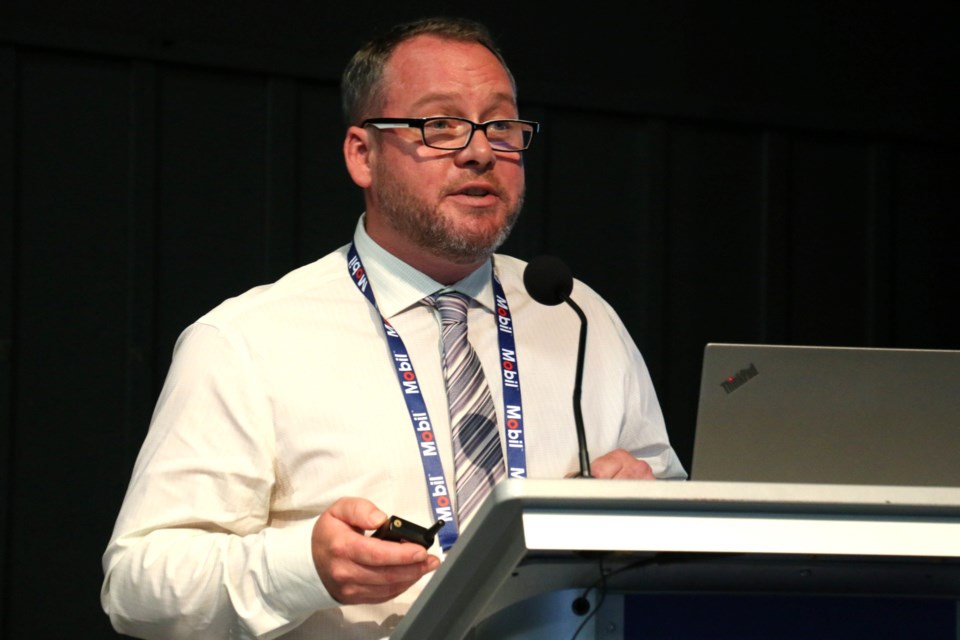The shortage of skilled workers in the mining industry could be partially resolved by hiring more workers with disabilities.
That was one of the messages put forward Monday at the Mine Operators and Maintenance Engineers conference, hosted by the Sudbury branch of CIM (Canadian Institute of Mining, Metallurgy and Petroleum).
J.C. Doyle, a Diversity and Inclusion specialist with the Ontario Disability Employment Network (ODEN), was a speaker at the conference being held at Science North this week.
Doyle told the audience of mining leaders that it is more critical than ever for the industry to consider inclusiveness in its hiring practices to fill current and future job openings. He said this goes beyond hiring based on gender and ethnic choices.
"Those that specifically target and recruit people who have disabilities will be accessing a large untapped talent pool," Doyle said.
He reported from Statistics Canada that in 2017, 22 per cent of Canadian adults had a disability. He said this was equal to the combined populations of Alberta, Saskatchewan and Manitobo. Doyle said that figure is rising, partly because Canadians are just living longer.
He said the pool of labour represented by people with disabilities is significant, but too many employers are reluctant to hire those people because of myths and a fear of the unknown that exists.
Doyle set out to address common myths about such things as work performance, attendance and safety. Doyle said that there are studies as well as anecdotes that disprove the myths. Safety is a key consideration, he said. Doyle said workplace accidents happen when people stray away from procedures and take shortcuts.
"People on disability have learned to navigate the world carefully to take less chances," Doyle said.
Another concern he said was about high turnover. Doyle said this is fiction. He said studies have indicated that workers with disabilities tend to stay with the job. Doyle said some studies indicated that workers with disabilities were far more likely to stay.
"Workers that have a disability are five times more likely to stay on the job. And they have retention rates 72 per cent higher than non-disabled employees."
He also argued that WSIB rates are not negatively impacted by workers with disabilities. Doyle said WSIB premiums are not based on worker demographics. He said the safer work habits of people with disabilities actually improves safety in the workplace.
Doyle reminded the audience about the movie “Moneyball” based on the effort to improve a major league baseball team by recruiting players with specific talents. Doyle said people look at a disabled person and think about what that person cannot do. He said the focus should instead be on what the person can do and how that applies to a specific job that needs to be performed.
Doyle said people with disabilities can perform so many jobs and that should be recognized for that.
"We don't hire people with disabilities so we can accommodate them. We hire them for the contributions that they can make" said Doyle.
Len Gillis covers mining and health care for Sudbury.com.



